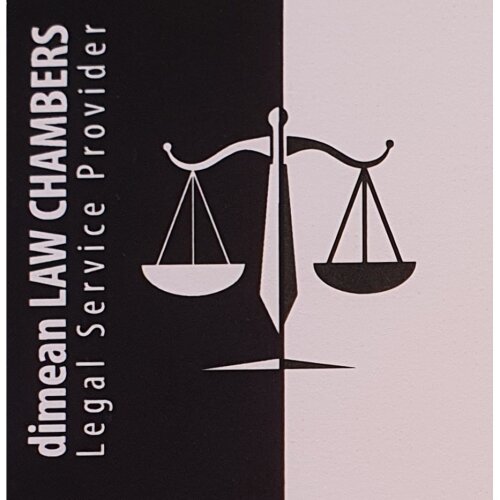Best Wage & Hour Lawyers in Sri Lanka
Share your needs with us, get contacted by law firms.
Free. Takes 2 min.
Or refine your search by selecting a city:
List of the best lawyers in Sri Lanka
About Wage & Hour Law in Sri Lanka
Wage & Hour law in Sri Lanka is governed by a combination of statutes and regulations designed to protect the rights and obligations of workers and employers. The core principles focus on fair compensation, adherence to minimum wage standards, overtime pay, rest periods, and proper record-keeping. These laws aim to ensure that workers are fairly compensated for their time while also regulating working hours to prevent abuse and overwork. Understanding these regulations is crucial for both employees and employers to maintain compliance and protect their rights.
Why You May Need a Lawyer
There are several common situations in which individuals may require legal assistance in relation to Wage & Hour matters in Sri Lanka. If you are facing issues such as wage theft, unpaid overtime, denial of breaks, or improper classification of your employment status, a lawyer can help. Additionally, if you are an employer, you might need legal guidance to navigate compliance issues or disputes with employees. A legal expert in this field can provide crucial advice and represent you in negotiations or litigation if necessary.
Local Laws Overview
The key aspects of local laws related to Wage & Hour in Sri Lanka include the implementation of minimum wage standards as set by the Wages Boards of various sectors. According to the Shop and Office Employees Act, employees are entitled to specific working hours, rest periods, and overtime compensation. Furthermore, the Termination of Employment Act stipulates conditions for lawful termination and benefits owed to employees. These laws hold both employers and employees accountable and ensure the fair treatment of workers.
Frequently Asked Questions
What is the minimum wage in Sri Lanka?
The minimum wage in Sri Lanka is determined by collective agreements and the Wages Boards for various trades and industries. It can vary depending on the sector.
How many hours constitute a standard working week?
A standard working week typically consists of 45 hours for most employees, as defined by the Shop and Office Employees Act.
Are employees entitled to overtime pay?
Yes, employees are entitled to receive overtime pay for any hours worked beyond the standard 45-hour workweek. The rate for overtime pay is typically higher than the normal rate.
What are the legal rest periods required?
Employees are generally entitled to at least a half-hour meal or rest period after five continuous hours of work, with additional rest periods as per employment contracts or collective agreements.
Can an employer change my working hours?
Employers may change working hours, but any changes should comply with legal standards and be agreed upon in writing by the employee where the contract stipulates.
What should I do if my employer is not paying me the minimum wage?
If an employer is not respecting the minimum wage laws, employees can file a complaint with the Commissioner of Labour or seek legal assistance for possible relief and restitution.
How is overtime calculated?
Overtime is calculated at one and a half times the regular wage rate unless otherwise specified by a collective agreement or contract.
What recourse do I have if I’m unfairly dismissed?
If you believe you have been unfairly dismissed, consult with a lawyer who can help you file a claim under the Termination of Employment Act for reinstatement or compensation.
Are part-time employees eligible for the same wage & hour protections?
Part-time employees are entitled to wage & hour protections proportionate to their working hours, based on agreements made with their employers.
What records are employers required to keep?
Employers are required to maintain accurate records of employee hours, wages, and any overtime payments for compliance with labor laws.
Additional Resources
For additional support, individuals can contact the Department of Labour in Sri Lanka, which offers information and assistance regarding wages and hour laws. Other resources include local trade unions and legal aid organizations that provide free or low-cost legal services.
Next Steps
If you're seeking legal assistance in Wage & Hour matters, start by documenting your situation thoroughly. Gather all relevant documents such as pay slips, employment contracts, and any written communication with your employer. Then, consider consulting with a lawyer who specializes in labor law to discuss your options. Remember to act promptly, as some legal claims have time limits for filing.
Lawzana helps you find the best lawyers and law firms in Sri Lanka through a curated and pre-screened list of qualified legal professionals. Our platform offers rankings and detailed profiles of attorneys and law firms, allowing you to compare based on practice areas, including Wage & Hour, experience, and client feedback.
Each profile includes a description of the firm's areas of practice, client reviews, team members and partners, year of establishment, spoken languages, office locations, contact information, social media presence, and any published articles or resources. Most firms on our platform speak English and are experienced in both local and international legal matters.
Get a quote from top-rated law firms in Sri Lanka — quickly, securely, and without unnecessary hassle.
Disclaimer:
The information provided on this page is for general informational purposes only and does not constitute legal advice. While we strive to ensure the accuracy and relevance of the content, legal information may change over time, and interpretations of the law can vary. You should always consult with a qualified legal professional for advice specific to your situation.
We disclaim all liability for actions taken or not taken based on the content of this page. If you believe any information is incorrect or outdated, please contact us, and we will review and update it where appropriate.
Browse wage & hour law firms by city in Sri Lanka
Refine your search by selecting a city.

















